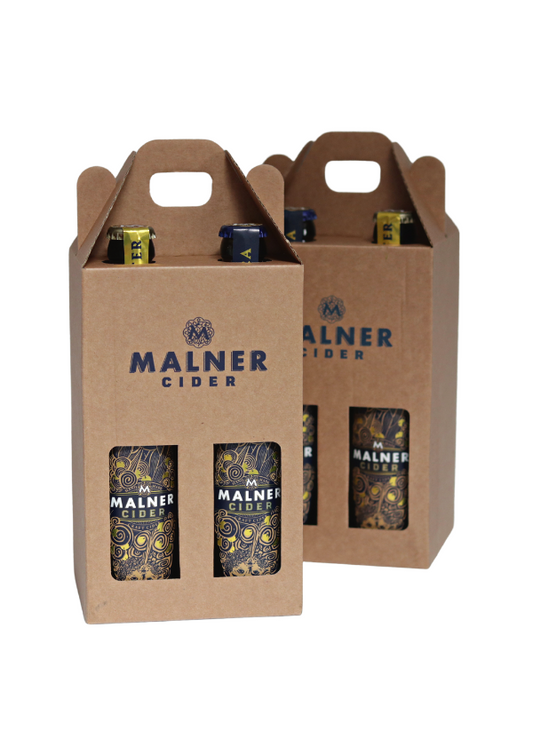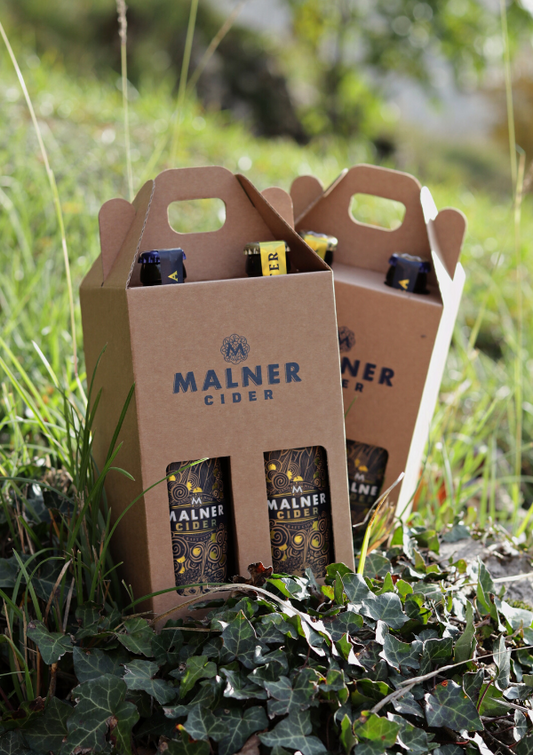"Is this mošt?" is something we often hear at presentations of our cider, and for good reason. Slovenia is rich in dialects, and the fermented apple juice drink has a significant variety of names.
For the alcoholic drink made from fermented apple juice, Slovenia uses several names such as *mošt*, *tolkec*, *tokovc*, *bunkovc*, *žvižgovc*, *jabček*, etc., which are specific to different regions of Slovenia and are mostly of local or regional character.
In rural areas, there has always been an abundance of apples, and the fermentation of apple juice is a natural process when the juice is left untreated. This is how the drink appeared all over Slovenia, but it remained in farmers' cellars. It was not traded, nor was its quality elevated to a product with market potential. *Mošt*, *tolkec*, *bunkovc*, *jabček*, and the like were mostly consumed at home or left to turn into apple cider vinegar. In any case, it is a traditional Slovenian drink.
The official Slovenian term for the fermented alcoholic drink made from apple juice, as found in the SSKJ (Slovenian Standard Dictionary), is *jabolčnik*. In our opinion, the term *jabolčnik* for this alcoholic drink is problematic, as a significant portion of people interpret it as apple juice, meaning a non-alcoholic beverage, or only as still apple wine, without a broader understanding of the various products made from fermented apple juice (with added juice, sparkling, with added CO2, etc.). This drink has a broad spectrum globally and allows for numerous variations. In practice, the term *jabolčnik* is understood differently in various regions of Slovenia. For example, if we were to organize a Slovenian Cider Day, most attendees would expect apple juice, and there would be many disappointed children, while we would be offering an alcoholic beverage.
Abroad, the same drink is known by names like *cider* or *cidra*, or other derivatives of the same root, representing the entire broad category of this drink. Derivatives of this root are used in most languages:
- Spain and Portugal: *cidra*,
- France: *cidre*,
- Italy and Lithuania: *sidro*,
- Poland: *cydr*,
- Latvia: *sidrs*,
- Finland: *siderii*,
- USA: *hard cider*,
- Romania: *cidru*,
- and in England, Slovakia, Sweden, the Netherlands, Denmark, Norway, Australia, and others: *cider* – used in both Germanic and Slavic countries.
This word and its derivatives are well recognized abroad, with a good reputation, a dedicated market, and a production sector that is independent and does not compare itself to other drink categories. The market and popularity of ciders abroad are currently growing, with an increasing number of cider festivals and competitions, the emergence of expert groups, research teams, and the establishment of educational programs for *pommelier* (the equivalent of a sommelier for wine) and the like. The word *cider* is also problematic in Slovenia, as it is a foreign term.
Therefore, no naming solution in Slovenia is ideal at the moment, and there is a certain level of confusion among both consumers and producers. We strongly support the use of old local names (which should not be forgotten!), but we need a unified name for the whole of Slovenia.
Producers who label their bottles with the name *cider* ensure recognition among foreigners, tourists, and informed consumers, who know exactly what to expect from a bottle labeled as cider.
Similarly, younger drinkers are familiar with the international term and feel more comfortable with it than with the label *jabolčnik*. We are not enthusiastic about using a foreign word and are aware that this issue remains unresolved, but for us in Primorska, the word *cider* is currently the only option, alongside the term "apple sparkling wine," as we in Primorska understand *jabolčnik* to mean apple juice.
As the late Aleš Germovšek said at the 2022 Fruit Wine Salon conference:
"It is encouraging that market-oriented craft producers with a wide range of cider styles are emerging. Producers of apple wines, both classic still and carbonated or sparkling, need to be connected with the aim of carrying out joint promotions, market presence, education for all stakeholders in the supply chain, and the development of the sector itself.
In Slovenia, our consumer is confused and does not fully understand the different terms. For example, in Carinthia, the traditional name is *mošt*, which in Styria does not immediately associate with *jabolčnik*. As a result, the consumer is hesitant to purchase, thinking it is something unfamiliar and new, relying on stereotypes. From this perspective, terminology needs to be standardized. For our market-oriented producers, it is therefore advisable, if not necessary, to label the bottle with the name *cider*."
JABOLČNIK OR CIDER?
20. 02. 2024











